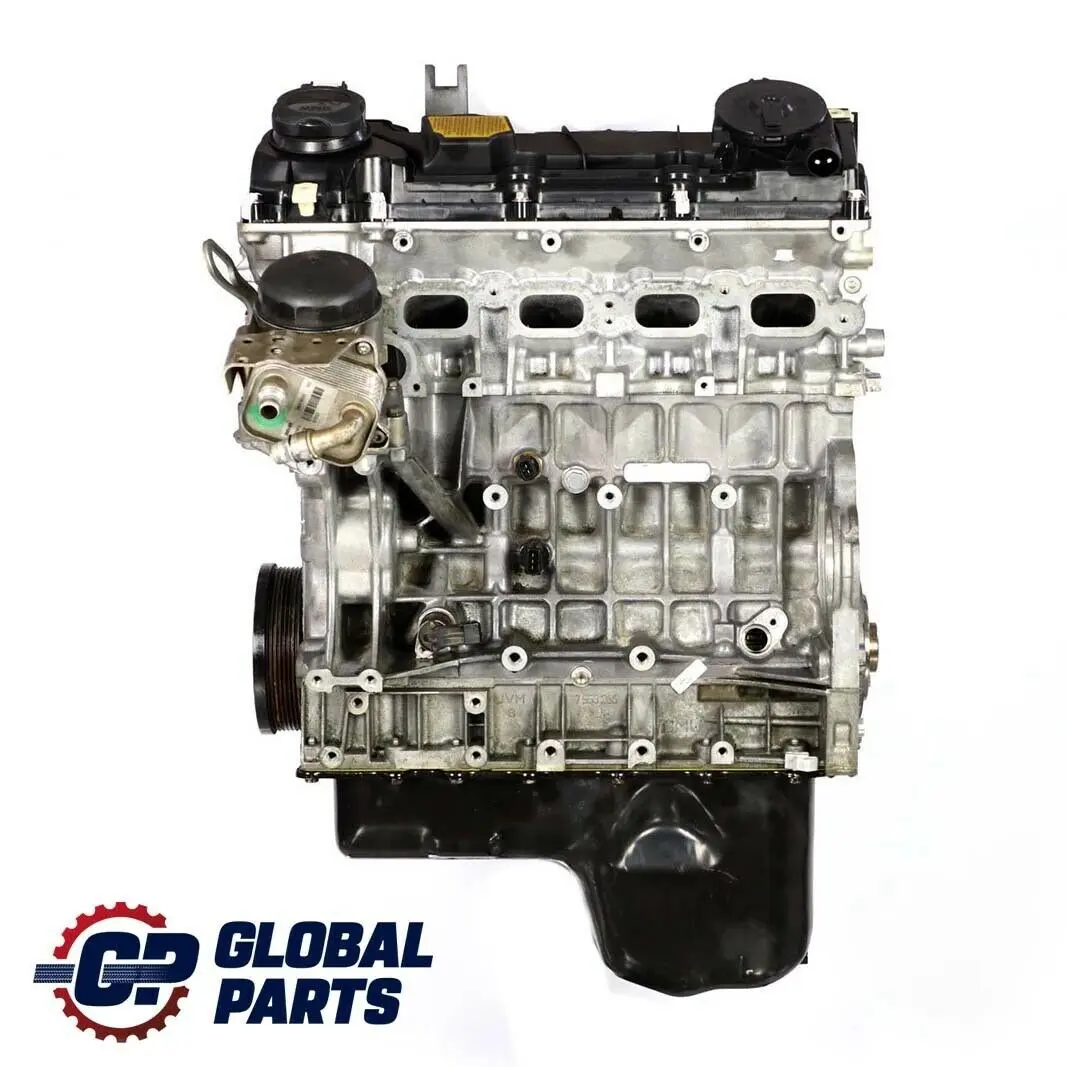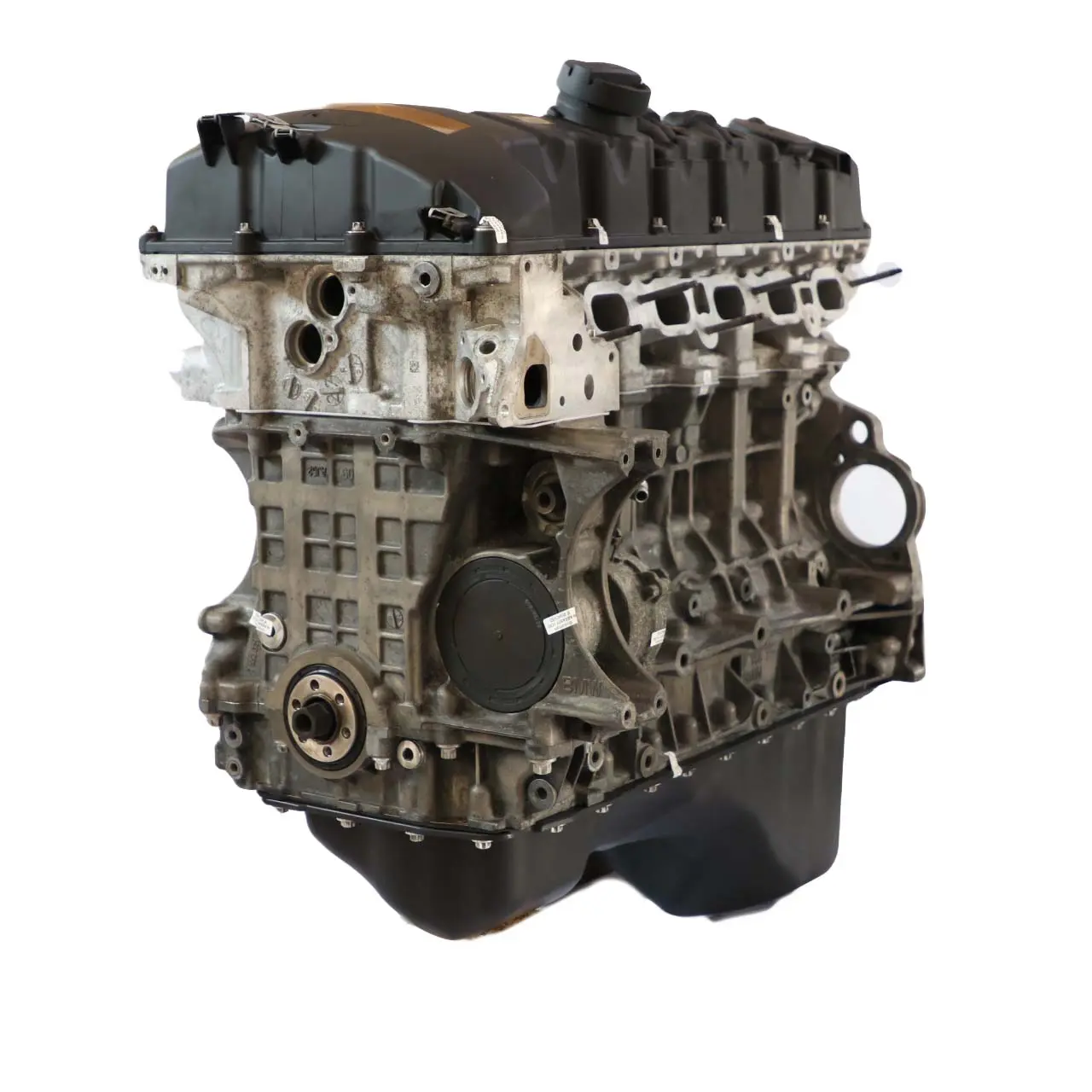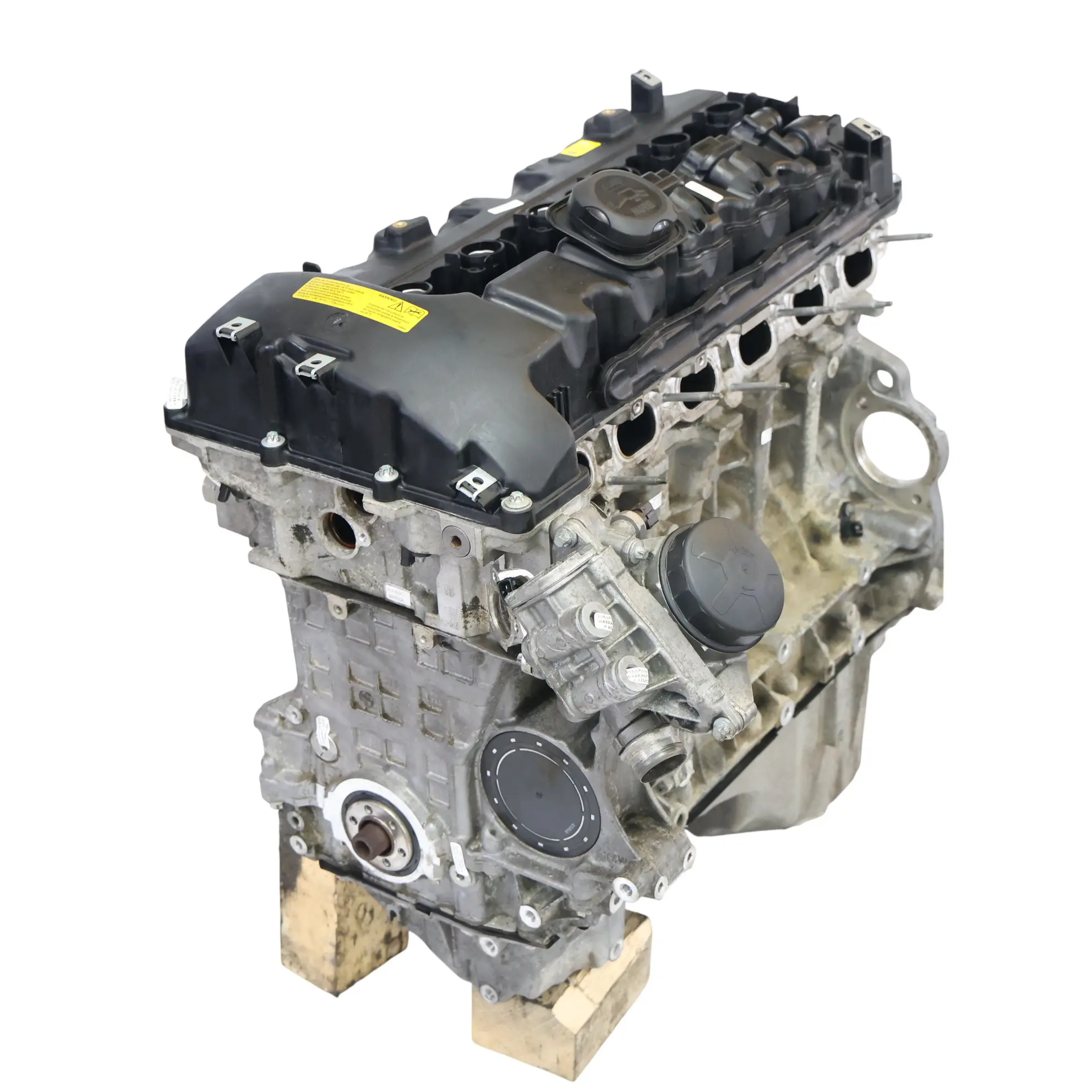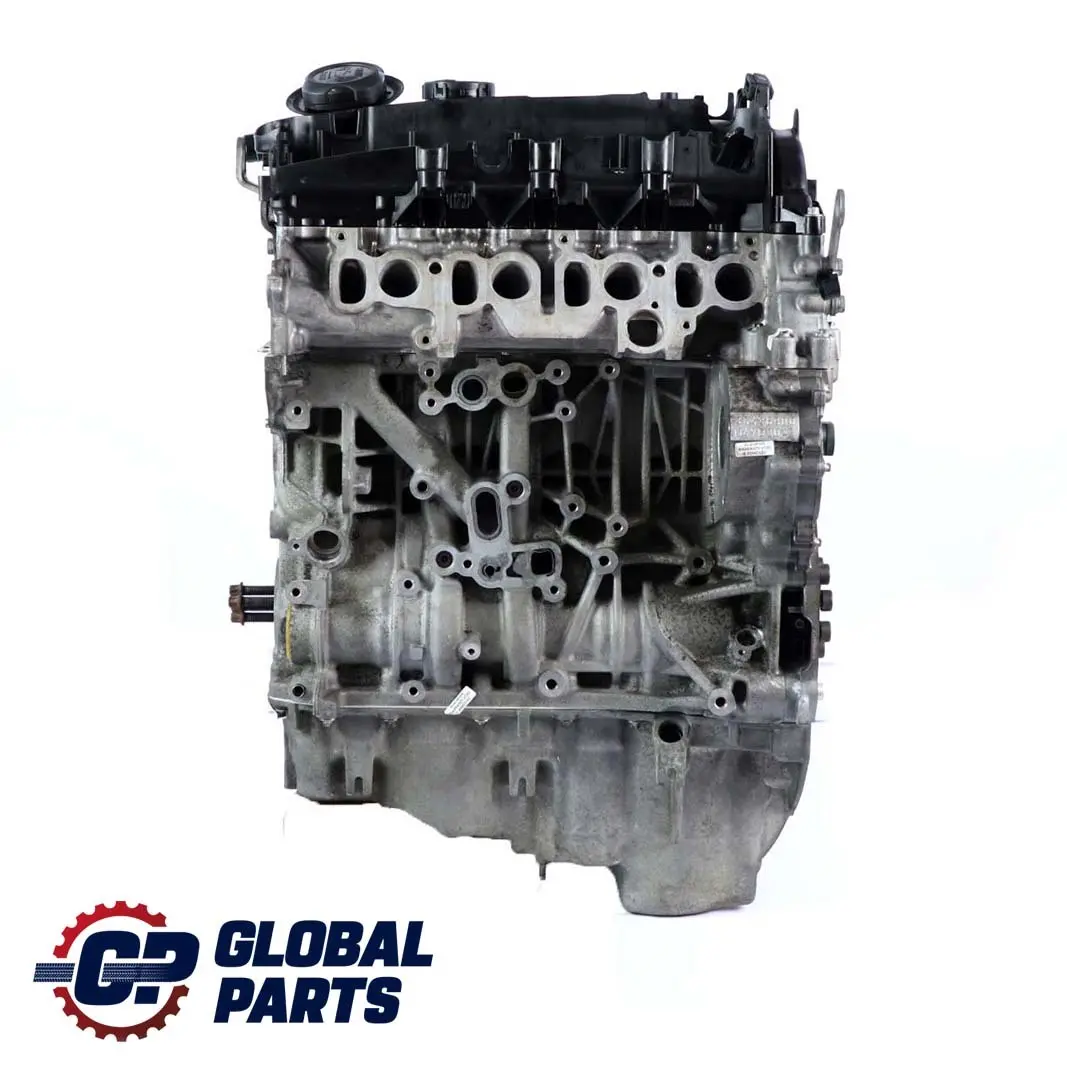BMW E90 Emergency Engines: Check What Can Ruin Your Budget!
Are you a car enthusiast and thinking about owning a BMW E90? Makes your heart beat faster? Before you take this step, it's worth knowing which engines may prove less durable than you'd like. Welcome to the world of the BMW E90 —a model beloved for its dynamics and style, but also burdened with some technical surprises. If you don't want to be caught off guard by sudden breakdowns or costly repairs, you've come to the right place! We've prepared a practical guide to the most problematic powertrains in this model . Learn what to look out for and how to avoid pitfalls that can significantly damage your wallet when choosing a BMW E90 . This is essential reading for every owner or future buyer of this German legend!
Timing chain problems on the N47 engine
N47 engine The 1.6L, particularly popular in the BMW E90, is a power unit renowned not only for its efficiency and dynamics, but also for its technical issues. One of the most common problems with this engine is timing chain failure. This chain plays a crucial role in the operation of the entire drivetrain, and its failure can lead to serious consequences.
In the BMW 3 Series E90, especially the 2.0 diesel version, these faults are frequently reported by owners on various automotive forums. Many users complain about noise coming from under the hood and difficulty starting the vehicle. These symptoms may be the first signs of engine problems.
The main causes of these failures are related to material wear and design flaws in the timing mechanism itself. In some cases, the timing chain can skip or even break, which can result in damage to the valves or pistons inside the engine. Repairs to such damage are typically expensive and time-consuming.
To avoid unexpected expenses related to timing belt replacement or repair in a BMW E90, it's recommended to have regular inspections and monitor the condition of this component from the moment you purchase your car. For many BMW 3 Series owners, it's both a financial and emotional investment – so it's worth ensuring it's properly protected.
It's important for prospective BMW E90 buyers to check the vehicle's service history for any previous timing belt interventions. It's common for previous owners to have experienced this issue and made appropriate repairs.
In summary: if you own or are planning to buy a car of this series, be aware of the potential risks associated with operating the N47 engine . Regular inspections will help you avoid unpleasant surprises and keep your car in excellent condition for many years to come. 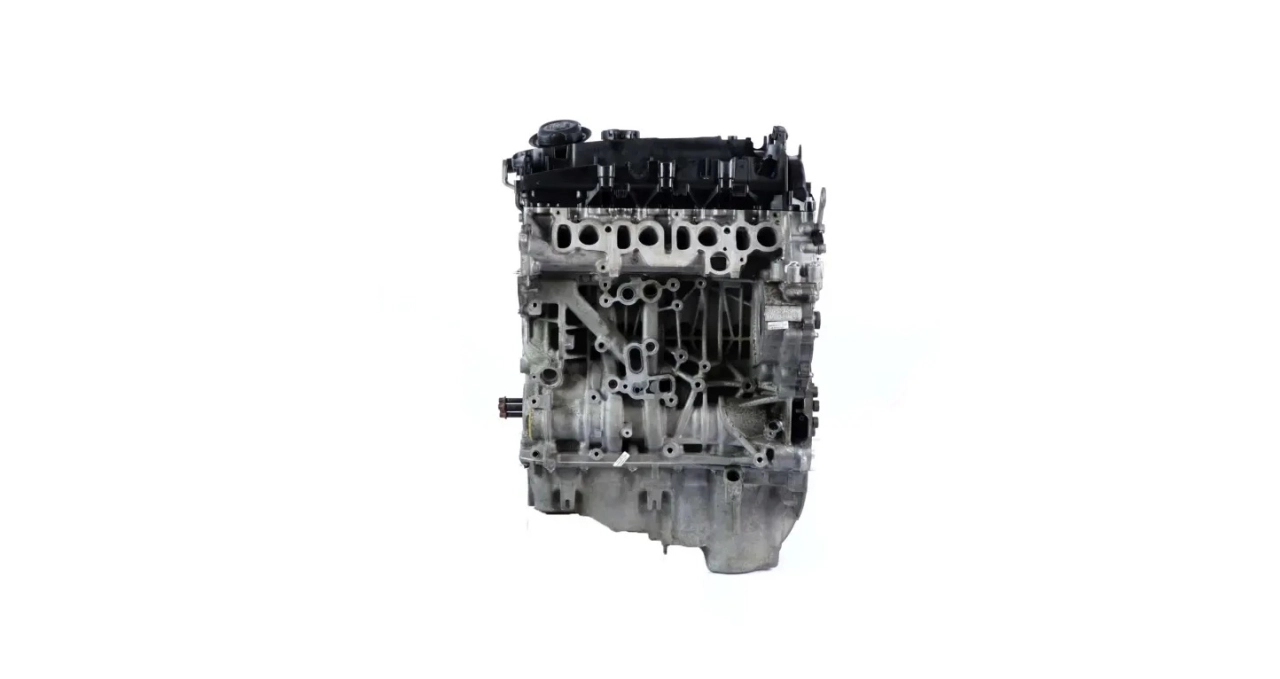
Excessive carbon buildup in the intake manifold of the M57 engine
M57 engine, known for its power and dynamics, is often found in the BMW E90 . However, this engine has its weaknesses. One of the main problems affecting this engine is excessive carbon buildup in the intake manifold. Carbon is a substance created by burning fuel and oil, which accumulates inside the intake system.
When carbon buildup in the intake manifold, it reduces airflow to the engine. This results in a loss of power and uneven engine operation. Many BMW 3 Series owners also report problems with overheating of M57 engine components. In extreme cases, it can damage the turbocharger or valves.
Owners of E90 3 Series models, especially those manufactured in 2005 or later, often have to deal with this problem by regularly cleaning the intake system. This process involves removing carbon deposits using specialized chemicals or mechanically cleaning the internal components.
To avoid costly repairs and keep your BMW 3 Series in good condition, it's recommended to use high-quality fuel and engine oils with the appropriate specifications for your vehicle model. Regularly replacing air filters also helps reduce carbon buildup.
For prospective BMW E90 buyers, it's crucial to check the car's service history for any previous interventions related to the intake manifold and the overall condition of the M57 engine. This knowledge allows them to better prepare for the potential operating costs associated with owning this type of car.
If you own or are planning to buy a car of this series, be aware of the potential risks associated with operating the BMW M57 engine . Regular inspections will help you avoid unpleasant surprises and keep your car in excellent condition for many years to come.
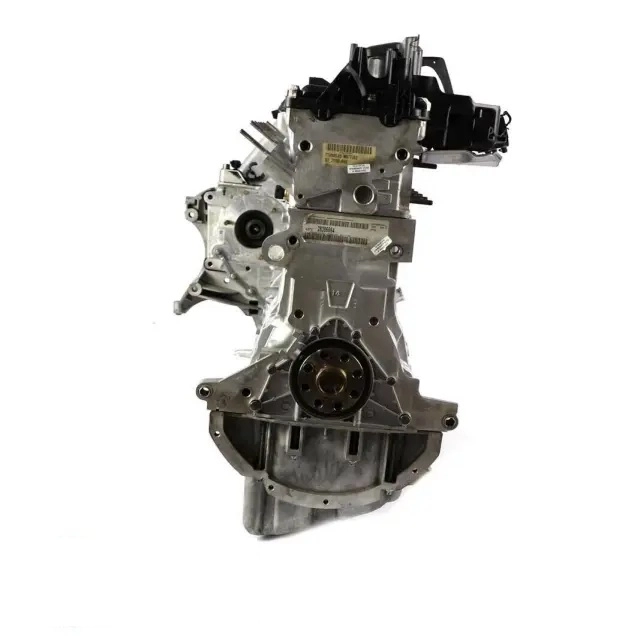
Turbocharger and gasket defects in N54 engines
BMW 3 Series E90 N54 engines are highly popular thanks to their power and dynamic performance. Unfortunately, they are not free from technical issues that can impact the comfort of these cars. One of the most frequently reported problems is turbocharger failure. Turbochargers in the BMW E90 They are crucial for increasing the power of the engine. However, their design can lead to premature wear. This manifests itself in a decrease in performance and a characteristic whistling sound coming from under the hood. In extreme cases, a complete loss of boost pressure can occur, significantly reducing the vehicle's power. Additionally, faulty BMW E90 engines with N54 units often suffer from seal leaks. Damaged seals contribute to oil or coolant leaks, resulting in engine overheating or uneven operation. This problem is particularly troublesome for owners of older models manufactured after 2006. Repairing a turbocharger or replacing gaskets in a BMW 3 Series can be expensive and time-consuming. Therefore, it's recommended to have these components regularly inspected and monitored from the moment you purchase the car. Maintaining the proper oil level and using high-quality consumables will also help reduce the risk of these problems. Owners of E90 3 Series models who plan to purchase a used one should check the vehicle's service history for any previous repairs related to turbochargers and gaskets. This knowledge will allow them to better prepare for the potential costs associated with operating this type of car. Being aware of the potential risks arising from the specific operation of N54 engines will help you avoid unpleasant surprises during everyday use of your BMW E90 .
Ignition coil and Valvetronic valve failures in N43 and N46 engines
BMW E90 engines, especially those with the N43 and N46 petrol units, are often prone to problems with ignition coils and the Valvetronic system. The 2.0-liter engine found in these models is known for its dynamic driving performance, but unfortunately, it's also complex, which can lead to various faults.
Ignition coils play a crucial role in the fuel combustion process. Their failure causes the engine to run erratically, manifesting as jerking while driving or difficulty starting the car. BMW 3 Series owners often report such issues as among the most common technical problems with their vehicles. Irregular engine operation not only affects the vehicle's comfort but can also contribute to increased fuel consumption.
The Valvetronic system, in turn, regulates the operation of the intake valves by directly controlling their lift. Mechanical wear of this part of the system can significantly impact the efficiency of combustion of the fuel-air mixture within the combustion chamber. Problems can manifest themselves in reduced power and increased exhaust emissions, which is particularly troublesome for owners concerned about the environment and meeting environmental standards.
To avoid unexpected failures of these components in your BMW 3 Series E90, regular inspections and replacement of worn parts according to the manufacturer's recommendations are recommended. Many owners of this model also choose to use high-quality consumables such as oils and air filters to reduce the risk of failure.
For prospective E90 buyers, a crucial step before purchasing should be to thoroughly check the vehicle's service history for any previous interventions on the ignition coils and Valvetronic system. This knowledge allows them to better prepare for the potential costs associated with operating such a car and manage their budget for maintaining the car in good working order for many years to come.
If you are a car enthusiast and are planning to invest in this iconic German sedan, remember these aspects related to its maintenance and operation – this will help you avoid many disappointments resulting from the specific operation of the N43/N46 engines.
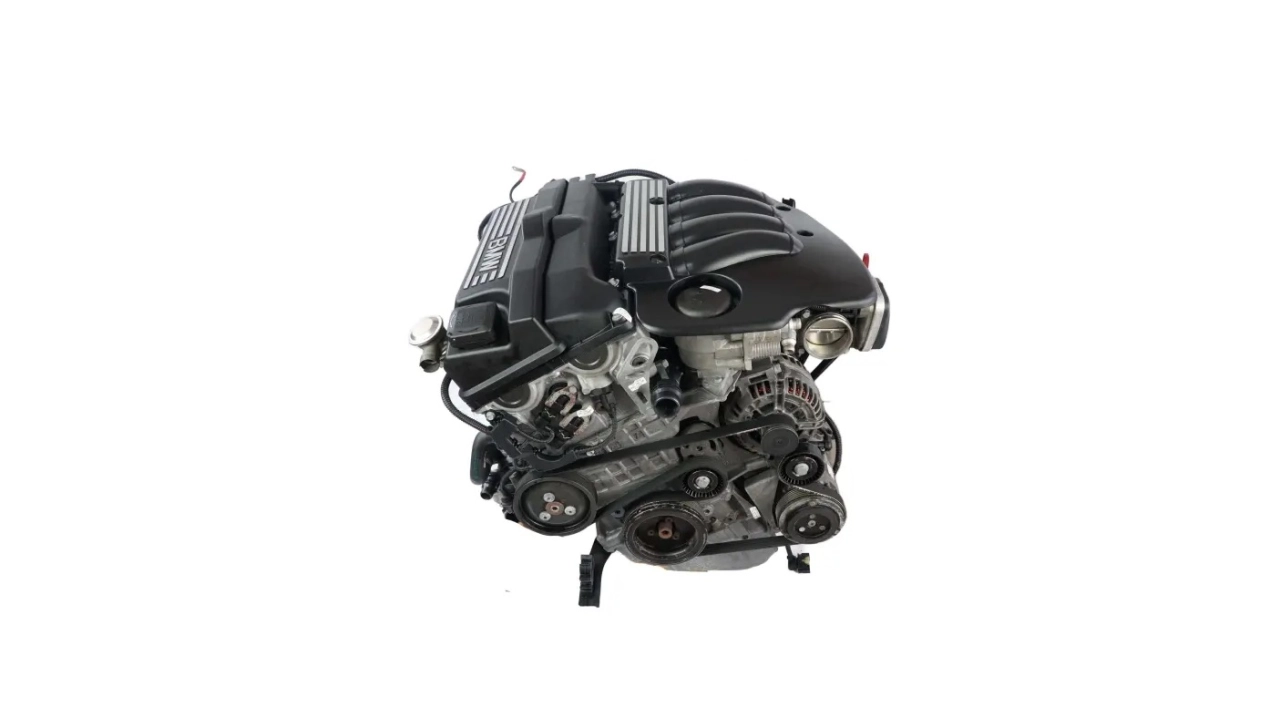
Injector problems in N52 and N53 engines
BMW E90 engines, particularly those with the N52 and N53 designations, are known for their fuel injector-related issues. The petrol engines of this BMW 3 Series often suffer from wear or blockage of these key components, leading to combustion disruptions.
Injectors play a crucial role in delivering the correct amount of fuel to the combustion chamber. Malfunctioning injectors can result in improper atomization of the fuel-air mixture. As a result, the BMW E90's power output can be significantly reduced, and the engine may become uneven.
BMW 3 Series E90 owners often report problems such as jerking while driving or difficulty starting the vehicle. These symptoms may be the first sign of a faulty injection system. Insufficient fuel delivery from faulty injectors also leads to increased oil consumption and exhaust emissions above environmental standards.
To avoid costly repairs associated with replacing damaged components, regular maintenance and the use of high-quality fuel and intake system cleaning additives are recommended. This will reduce the risk of breakdowns and extend the life of your BMW E90 engine.
For future owners of these cars, an important step is to check the vehicle's service history for any previous injector replacement or reconditioning. This knowledge allows them to better prepare for potential operating costs related to the specific operation of these engines.
Let us also remember that taking care of the technical condition of our cars is both a financial and emotional investment - it is worth taking care of it from the moment you buy a used 3 Series E90 model, to enjoy its dynamic performance for many years of use without unnecessary surprises resulting from the use of faulty engines of this generation.
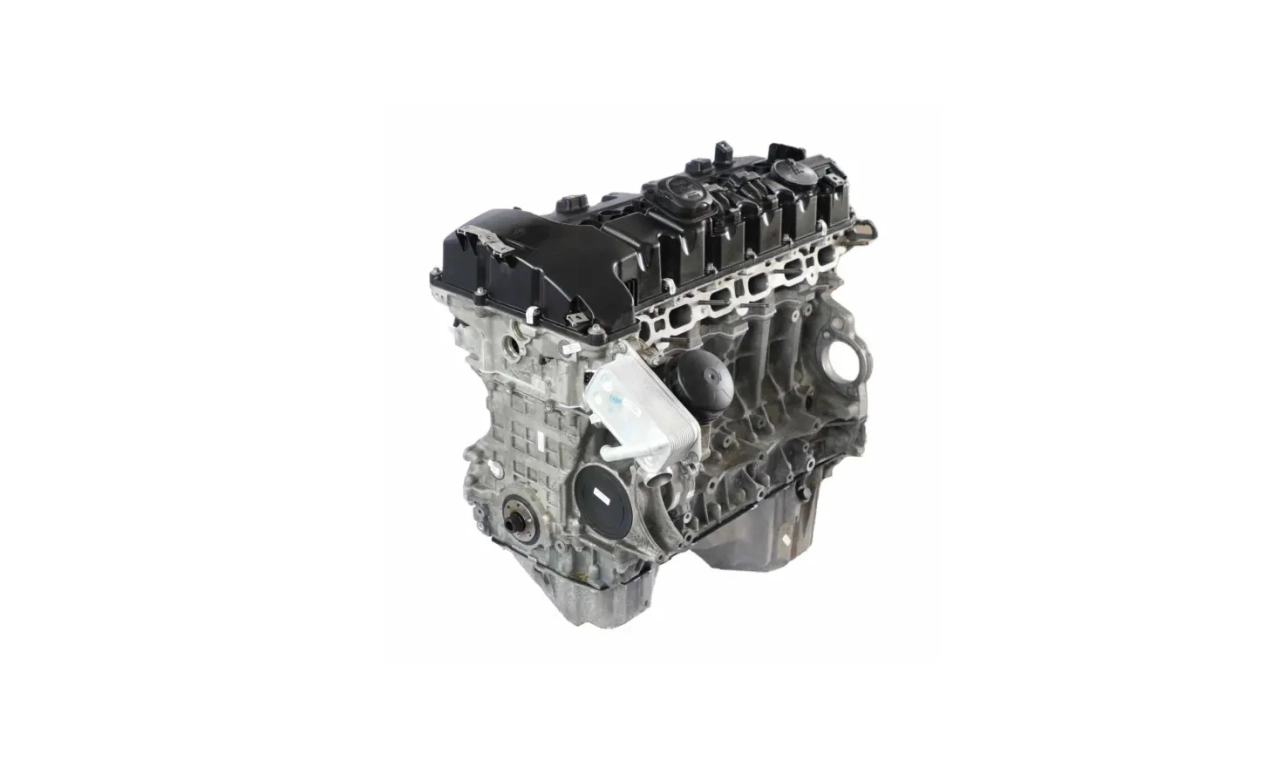
Impact of high pressure fuel pump failure on performance
A high-pressure fuel pump failure is a serious challenge faced by owners of emergency BMW E90 engines . This pump plays a crucial role in ensuring the proper fuel pressure necessary for the engine to function properly. When it fails, the consequences are immediate and noticeable to the driver. The first symptom of the problem is a loss of power . Without sufficient pressure, fuel doesn't reach the combustion chamber effectively, resulting in poor engine performance. For those who enjoy dynamic driving in BMW 3 Series models, this means losing one of the vehicles' main strengths—their liveliness and responsiveness to the accelerator pedal. Another symptom may be difficulty starting the vehicle or rough running while driving. A faulty pump also affects the stability of the engine, leading to jerking or engine stalling while stopped at a traffic light or in traffic jams. BMW 3 Series E90 owners, especially older versions manufactured after 2005, often report these problems as among the most common faults with their cars. The costly replacement of a faulty pump and the potential consequences of an undetected failure add up to a significant financial expense associated with operating this type of car. Regular inspections and the use of high-quality consumables can significantly extend the life of fuel system components in BMW E90 models. Many owners also choose to preventively check pump operating parameters during routine maintenance. For those planning to purchase a used car, a thorough review of the vehicle's technical condition and the history of any service interventions related to the fuel system is crucial. This knowledge allows you to avoid unexpected costs associated with owning a BMW and enjoy the full capabilities of these legendary models for many years to come, without unnecessary disruptions resulting from the specific operation of their engines.
Cooling system problems and their impact on engine failure rates
BMW E90 engines, known for their dynamic performance and advanced technology, often suffer from cooling system problems. E90 3 Series owners should be aware that insufficient cooling system efficiency can lead to serious engine failure . One of the main problems is a faulty water pump. This pump is responsible for circulating coolant throughout the system. Failure to do so can result in engine overheating, which can ultimately lead to permanent damage. Other symptoms include coolant leaks and uneven thermostat operation, which can also impact cooling efficiency. It's worth paying attention to the condition of the radiator and coolant lines. Contamination or corrosion in these components restricts fluid flow, increasing the risk of engine overheating. Regular inspection of these parts is essential to maintaining optimal operating temperature in the BMW 3 Series E90 engine . For many BMW E90 owners, especially older models dating back several years, monitoring coolant levels and quality is crucial. Specialized additives may be necessary to prevent internal corrosion. The role of electric fans, which aid in the cooling process when stationary or driving at low speeds in urban environments, cannot be overlooked. Their malfunction is manifested by rapid increases in engine operating temperatures and frequent activation of warning lights on the dashboard of a BMW 3 Series E90 . In order to avoid costly repairs resulting from the specific operation of these components, it is recommended to have regular technical inspections performed by professionals who know the operating characteristics of models of this generation of cars from the German manufacturer, such as the BMW brand. Taking care of the technical condition of the cooling system is both a financial and emotional investment - it allows you to enjoy the full possibilities offered by these legendary models without fear of sudden failure caused by improper functioning of a key element of every vehicle: an efficiently functioning mechanism regulating the operating temperature of its most important part - the engine itself!
How to avoid costly pitfalls with faulty BMW E90 engines
The decision to buy or own a BMW E90 is a step that can bring great joy to any car enthusiast. However, as you probably already know, some of this model's powertrains can become a source of unexpected expenses. By choosing the right model and ensuring regular servicing, you can minimize the risk of malfunctioning BMW E90 engines . If you're planning to buy a used car from this series, make sure you check the technical condition of key components, such as the timing chain in the N47 engine or the intake system in the M57 engine . Check the vehicle's service history for any work on turbochargers or ignition coils—this information will help you better prepare for future operating costs. Regular inspection and replacement of worn parts according to the manufacturer's recommendations are crucial to extending the life of your BMW E90 . Using high-quality consumables and fuel will reduce the risk of problems typical of troublesome BMW E90 engines . Also remember to regularly check the fuel pump and cooling system—their efficiency is essential to maintaining optimal engine performance and avoiding overheating or power loss. This will ensure your car remains a reliable travel companion for many years to come. Knowledge is power! Being aware of the potential risks associated with operating BMW E90 models will allow you to enjoy their exceptional performance without unnecessary stress or the fear of sudden breakdowns. Take care of your car from the very beginning – invest time and money in its maintenance, and it will reward you with the unparalleled driving comfort typical of legendary German engineering. May your experience as an owner of an iconic sedan be full of satisfaction – because your passion for motoring deserves the support of the highest quality technology offered by the BMW brand!
Unit Definitions and Mappings - Codes, Powers, Applications (BMW E90)
The engine code is the manufacturer's abbreviation identifying the family and variant (e.g. BMW N47D20A/C engine, M47N engine, N52, N53, N54 ). In practice, it facilitates the matching of OEM/PN components and assembly planning. BMW E90 320d engine (N47/N47D20C/ N47 engine 184HP timing ) – typically 120–135–150–163–177–184HP depending on year and maps; timing thread applies to the N47 version. BMW E90 318i / 320i (N46/N43) engine – typically 129–170 HP ; service points are ignition (coils) and Valvetronic. BMW E90 325i engine (N52B25/N52B30) – approx. 218 HP, appreciated for the smooth operation of the R6. BMW E90 engine cover – a body element protecting the pan and accessories; it is selected based on the VIN/OEM (different mountings and embossing depending on the engine and drive). BMW E90 - the least reliable engine (in terms of use): often recommended M47N (diesel) and N52 (petrol), subject to proper servicing and equipment compatibility.
Engine selection and matching procedure
Step 1 – Identification: body variant, year, engine code (e.g. BMW E90 320d – N47D20C engine, BMW E90 320i – N46/N43, BMW E90 325i – N52, BMW E90 318i – N46/N43 ). Step 2 – Parameters/OEM: Write down the PN/OEM (ETK) and installation parameters (port diameters, threads, electrical connectors). For engine covers – mounting points; for intake/exhaust accessories – diameters (e.g. Ø60–63 mm). Step 3 – Integration: After modifications (IC/turbo/injection) anticipate ECU adaptations (lambda/AFR, boost pressure). Step 4 – Functional Verification: Measuring target values (e.g. vacuum, fuel pressure, IAT/ECT temperatures) ensures repeatability and cost savings in the long term.
Practical comparison - which BMW E90 engine is the least reliable?
| Engine / variant | Factory power (approx.) | Typical issues | Fitment Instructions (OEM/VIN, Installation) |
|---|---|---|---|
| N47D20A/C – 320d (including 184 HP) | 143–184 hp | timing chain (location from the gearbox), guides | timing belt PN selection based on VIN; accessories updates in accordance with ETK |
| M47N – 320d (predecessor of the N47) | 150–163 hp | deposits in the intake, EGR | manifold compatibility; EGR by engine code |
| N52B25/B30 – 325i/330i | 218–272 hp | VANOS sensors, pneumothorax | parts by VIN; valve cover seals according to PN |
| N53B30 – 325i/330i DI | 204–272 hp | direct injection, coils | indexed injectors; coils according to PN and year |
| N54B30 – 335i | 306 hp | turbochargers (kits), seals | DP/IC by diameter; oil and cooling as per specifications |
| N46/N43 – 318i/320i | 129–170 hp | coils, Valvetronic | PN coils; throttle/Valvetronic calibrations after installation |
| Accessories – BMW E90 engine cover | — | various mounts | cover number by VIN; compatibility with accessories and side covers |
FAQ - the most frequently asked questions by our customers
| Question | Answer |
|---|---|
| 1) What is the engine code and where can I find it? | Factory designation (e.g. N47D20C, N52B30); used to select OEM/PN parts. In service documentation/ETK. |
| 2) What is the difference between the N47 and the M47N in the E90? | N47: newer 2.0d, timing on the gearbox; M47N: earlier 2.0d, easier to service. |
| 3) BMW E90 - which engine is the least reliable for everyday driving? | Frequently indicated: N52 (R6 petrol) and M47N (diesel), assuming scheduled servicing. |
| 4) 320d N47 184 HP – what's up with the timing? | The timing belt in the N47 can be critical; the kit is selected based on the VIN/OEM and installed according to the procedure. |
| 5) Is the BMW E90 engine cover "universal"? | No, they differ in embossing and mounting; selecting them by VIN ensures compatibility. |
| 6) 320i/318i (N46/N43) – typical ignition system symptoms? | Uneven operation, jerking, ignition errors; coils are selected based on PN and year. |
| 7) BMW E90 damaged engine - where to start? | Determine the unit code, damage scope and OEM/PN list; this speeds up installation and selection of compatible parts. |
